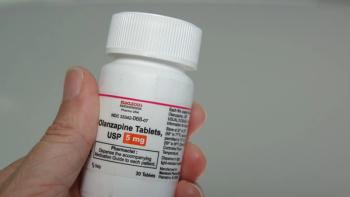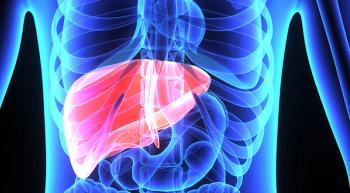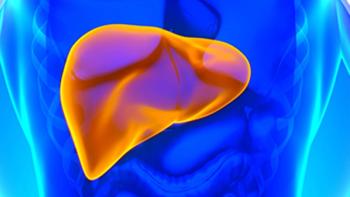
The complete response letter, issued by the FDA, does not identify what deficiencies regulators found in camrelizumab/rivoceranib for advanced HCC.

The complete response letter, issued by the FDA, does not identify what deficiencies regulators found in camrelizumab/rivoceranib for advanced HCC.

The FDA has given RZ-001 fast track designation for HCC after demonstrating therapeutic activity in preclinical studies.

Patients treated with tyrosine kinase inhibitors received olanzapine to address adverse effects including nausea/vomiting, anorexia, insomnia, and weight loss.

Amezalpat has been granted FDA fast track designation as treatment for patients with hepatocellular carcinoma.

First-line nivolumab plus ipilimumab was shown to be effective and well-tolerated in patients with unresectable hepatocellular carcinoma in the CheckMate 9DW study.

The addition of lenvatinib/pembrolizumab to TACE showed a numerical improvement in PFS, but longer follow-up is necessary to confirm this finding.

Lenvatinib showed a median PFS of 5.4 months in advanced HCC patients following treatment with atezolizumab/bevacizumab, meeting the primary endpoint.

Nivolumab and hyaluronidase-nvhy (Opdivo Qvantig) was approved by the FDA for subcutaneous injection across approved solid tumor indications for nivolumab (Opdivo).

The FDA accepted a resubmission of a new drug application for frontline rivoceranib plus camrelizumab to treat unresectable, metastatic HCC.

Lenvatinib, pembrolizumab, and TACE outperformed placebo plus TACE in progression-free survival for intermediate-stage hepatocellular carcinoma.

A supplemental biologics license application has been accepted by the FDA for nivolumab plus ipilimumab as first-line treatment for unresectable hepatocellular carcinoma.

Patients with advanced hepatocellular carcinoma treated with nivolumab plus ipilimumab had an improvement in overall survival compared with standard-of-care TKIs.

Treatment with durvalumab, bevacizumab, and TACE improved PFS in embolization-eligible patients with unresectable hepatocellular carcinoma.

Treatment with regorafenib in patients with unresectable hepatocellular carcinoma and poor liver function may lead to serious side effects that may result in discontinuation of the treatment.

Patients with advanced hepatocellular carcinoma treated with frontline pembrolizumab plus lenvatinib showed a 3-year or more response among 35% of responders, although additional efficacy results from the trial are consistent with previous findings from the phase 3 LEAP-002 trial.

Three patients with resectable hepatocellular carcinoma experienced significant tumor necrosis greater than 70% after neoadjuvant treatment with low-dose stereotactic body radiation therapy and cemiplimab-rwlc, in addition to adjuvant cemiplimab.

Immuno-oncology regimens were linked with improved long-term survival among patients with hepatocellular carcinoma.

Patients with unresectable hepatocellular carcinoma who received rivoceranib/camrelizumab achieved a median progression-free survival of 5.6 months vs 3.7 months with sorafenib.

Combined adjuvant treatment with atezolizumab and bevacizumab was determined to deliver a statistically significant recurrence-free survival benefit to patients with resected hepatocellular carcinoma.

Newer agents approved for frontline hepatocellular carcinoma, including lenvatinib, and atezolizumab/bevacizumab, yielded superior survival outcomes than sorafenib in a real-world setting.

Patients with advanced hepatocellular carcinoma experienced similar health-related quality of life scores whether they received a combination of pembrolizumab and lenvatinib or lenvatinib and placebo.

The combination of durvalumab and tremelimumab has been approved for patients with unresectable hepatocellular carcinoma. The combination comes with warnings for immune-related adverse events and infusion reactions.

Patients with hepatocellular carcinoma achieved a median overall survival of 15.9 months with tislelizumab and 14.1 months with sorafenib.

In a real-world analysis of patients with hepatocellular carcinoma, the median overall survival with lenvatinib was 9.7 months in the low-dose group and 7.6 months in the recommended-dose group.

A multicentre, retrospective study showed that treatment-related adverse effects associated with atezolizumab plus bevacizumab were prognostic of improvements in survival outcomes in patients with hepatocellular carcinoma.